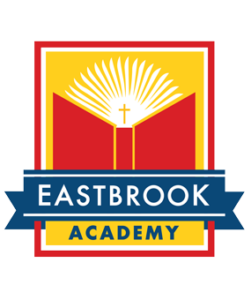OUR PHILOSOPHY
Eastbrook Academy aligns itself with the Truth as revealed in the Bible and taught by Jesus Christ. At the same time, we accept all students and families who understand and agree to abide by the standards the school sets by that faith. We teach students Biblical truths, help them learn about world religions, engage with scripture, and build their critical thinking skills so that they can develop their own vibrant faith.
Diverse Community
Eastbrook Academy is a school that in every way challenges and overcomes the racial, economic, social, ethnic, and geographic divisions of our city. Serving both urban and suburban students of varying economic and ethnic backgrounds, students are exposed to a broad range of experiences. While each student brings their unique background to the school, the high academic and behavioral expectations are the same for each child.
Rigorous Standards
Eastbrook Academy teaches students how to use language effectively as listeners, speakers, writers, and readers. Our rigorous academic program provides a school experience that is focused on developing the whole child. The Academy maintains a high standard of college preparatory coursework to academically prepare your student for higher education.
Inspired by the Classical Model
Our philosophy of education and definition of rigor has been inspired by the Classical model. Key principles we have embraced include a focus on the whole person, embracing age-appropriate instruction (Grammar > Logic > Rhetoric), the teaching of cultural heritage, and a strong emphasis on Arts, Music, and Language Arts. We place an emphasis on the development of Christian character and an understanding of God’s Word as a way to inform learning and growth throughout life. We value truth, beauty and goodness.
- Grammar Stage (K-5)
The early years of school are spent absorbing facts, systematically laying the foundation for advanced study. - Logic Stage (6-8)
At the middle school level, teachers teach skills of reasoning, critical thinking, analysis, and evaluation. Students learn to discern causes, motives, and to investigate theory.
III. Rhetoric Stage (9-12)
In high school, students learn to express themselves and become proficient in communicating analyzed information. They ask questions, investigate the truth and then formulate responses. They hone their communication skills by defending their position both verbally and in writing.
